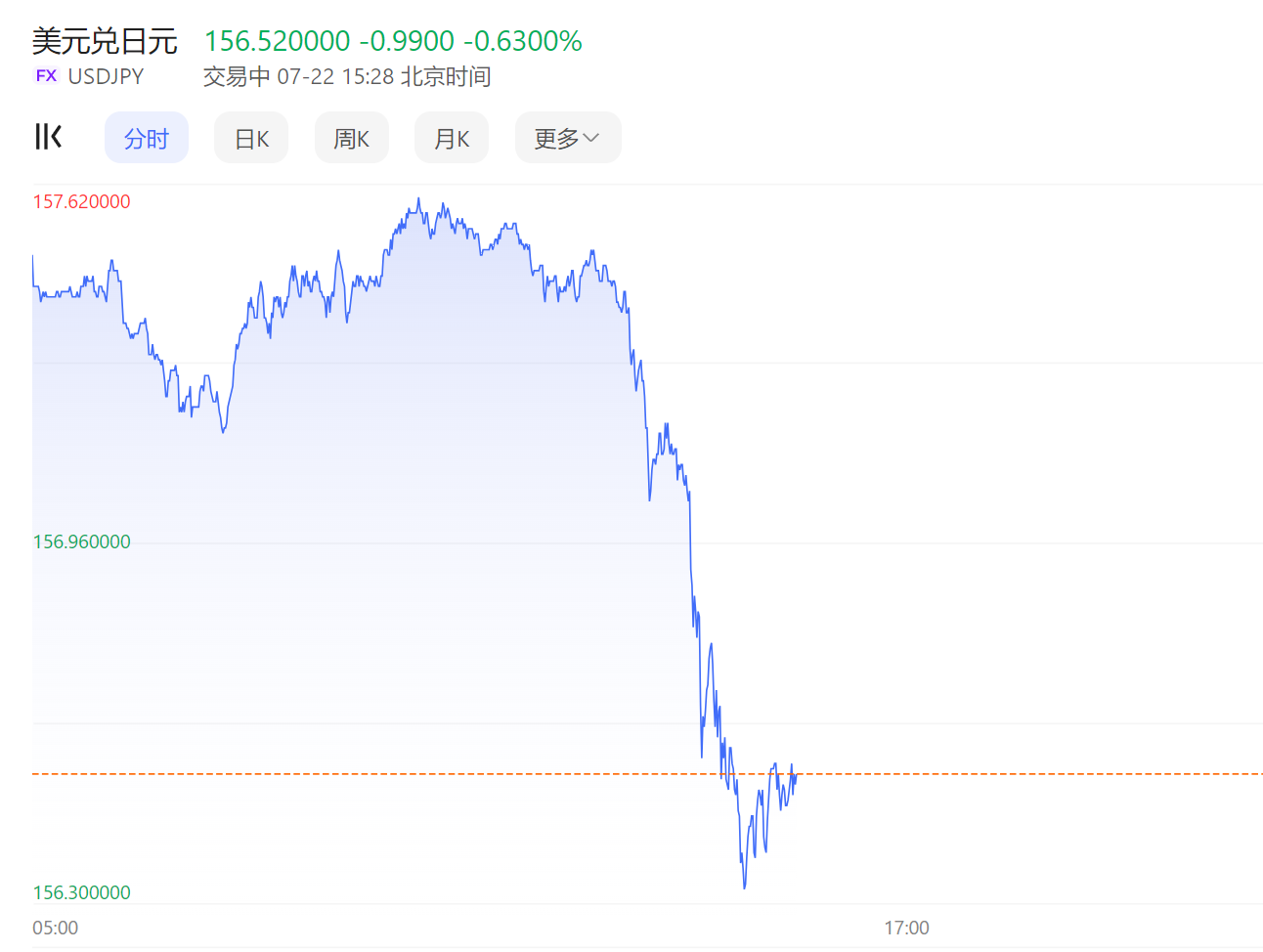Largest Scale in Over a Decade! Hedge Funds Significantly Cut Yen Short Positions
According to data from the US Commodity Futures Trading Commission (CFTC), as of the week ending July 16, leveraged funds reduced their net short contracts in yen by 38,025, the largest reduction since March 2011.
_918091147_419.jpeg)
Against the backdrop of increased risk of intervention by Japanese authorities, hedge funds are accelerating their "flight" and significantly reducing their short positions in the yen.
According to data from the US Commodity Futures Trading Commission (CFTC), as of the week ending July 16, leveraged funds (a type of hedge fund) reduced their net short contracts in yen by 38,025, the largest reduction since March 2011.
Although they still hold a net short position of 76,588 contracts, this shift coincides with the improvement in sentiment in the yen market, with the yen rebounding to its highest level against the US dollar since early June last week.
It is estimated that the Japanese authorities spent 5.64 trillion yen in just two trading days to raise the yen from near its weakest level in the 1980s. As a result, hedge funds withdrew during this turbulent trading week.
Yukio Ishizuki, senior foreign exchange market strategist of Daiwa Securities in Tokyo, said: "After Japan has taken a series of intervention measures, there is not much demand for selling yen." He further said, "Before the Bank of Japan announces its policy decision on July 31, the trend of closing short yen positions seems to dominate."
On Monday, July 22nd, the US dollar fell against the Japanese yen. As of press time, the USD/JPY exchange rate is at 156.52.

The recent rebound of the yen also reflects the market's firm bet on the Fed's September interest rate cut, as well as Trump's criticism of the yen's weakness.
The next major test for traders will be at the end of July, when both the Federal Reserve and the Bank of Japan will release policy decisions. Any dovish hint from the Bank of Japan could become a reason to re short the yen.
According to CFTC data, asset management companies have also reduced their short positions in the Japanese yen by the largest amount in a year.
As consumer prices in Japan accelerate for the second consecutive month in June, the reasons for policymakers to raise interest rates again are becoming increasingly compelling. According to a survey last month, about one-third of Bank of Japan observers expect the bank to raise interest rates at its meeting on July 31st.
We expect the Bank of Japan to raise interest rates in July, which could add some much-needed sustainability to the yen, "wrote Krishna Bhimavarapu, Asia Pacific economist at State Street Global Advisors, in a report
·Original
Disclaimer: The views in this article are from the original Creator and do not represent the views or position of Hawk Insight. The content of the article is for reference, communication and learning only, and does not constitute investment advice. If it involves copyright issues, please contact us for deletion.